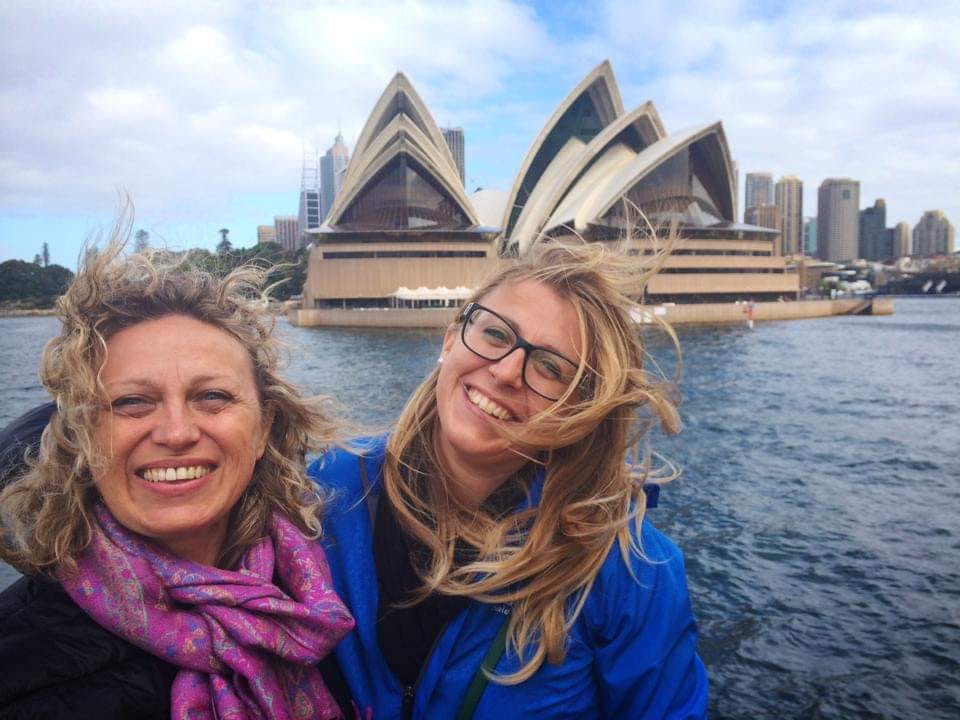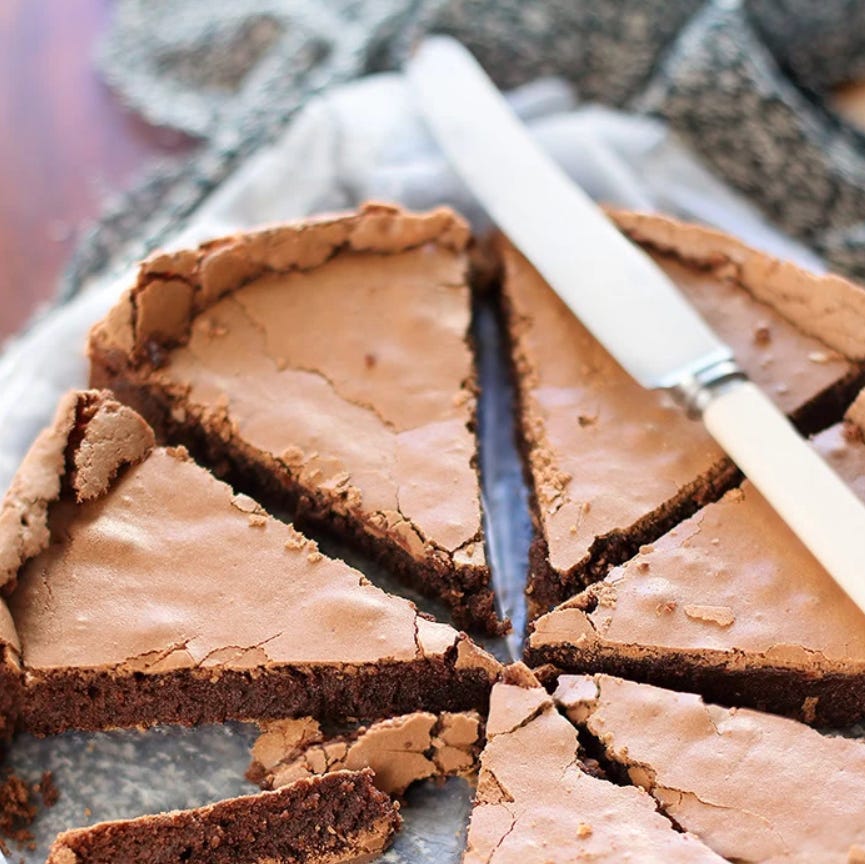Caro/a amico/a,
Stamattina Charlie e Jack hanno detto “mamma” almeno settantasei volte prima delle sette. Charlie tende a chiamarmi “mamy”, Jack invece dice “mum”, e ogni tanto mi guardano come se dovessi risolvere l’universo intero (the entire universe).
Ora capisco perché, quando ero piccola, mia mamma mi diceva:
“Oh Monica, mi consumi il nome!” (you wear out my name!)
E aveva ragione.
Chissà perché i bambini si aggrappano (cling) a quella parola come fosse un’àncora (anchor), una coperta (blanket), un telecomando magico (magic remote control) per ogni bisogno.
In italiano, “mamma” non è solo un titolo: è una funzione vitale (vital function), un suono antico, una presenza (presence) che si sente anche quando non si vede.
È coccole (cuddles), rimproveri (scoldings), ragù, biancheria stirata (ironed laundry), telefonate infinite, tipo “hai mangiato?”, e baci che sanno di buonanotte.
Ma è anche silenzio.
Quello delle notti in bianco (sleepless nights), delle preoccupazioni (worries) che non si dicono, delle decisioni prese mentre tutti dormono (while everyone sleeps).
Oggi che sono io mamma, capisco molte più cose.
Capisco quanto sia invisibile (invisible) — e a volte solitaria — tutta la gestione emotiva (emotional management) che una madre porta sulle spalle (shoulders).
La pazienza (patience) che si finge di avere, l’attenzione ai dettagli che nessuno nota, i pensieri che corrono veloci anche mentre giochi con le costruzioni (building blocks).
E quindi questa newsletter è un grazie, ma non retorico (rhetorical), non patinato.
Un grazie vero, magari un po’ spettinato (messy).
Alle mamme che lavorano, che dimenticano (forget) di comprare il latte ma si ricordano i sogni dei figli.
A quelle che urlano (shout), poi si scusano (apologise).
Che cucinano anche quando non ne hanno voglia.
A chi si chiede, ogni giorno: “Sto facendo abbastanza?”
La risposta non è semplice. Ma una cosa è certa: ti vediamo.
Con le occhiaie (dark circles), le maniche arrotolate (rolled-up sleeves), con il cuore che batte fuori dal petto.
E poi, questa newsletter è anche per tutte le altre mamme.
Alle mamme malate, che lottano ogni giorno con il proprio corpo.
Alle donne che vorrebbero essere mamme, e stanno attraversando attese (waits), assenze (absences), tentativi (attempts).
Alle mamme che lo sono per i nipotini (nephew and nieces), per gli alunni (students), o per un cagnolino salvato da un canile (puppy rescued from a shelter).
Alle mamme in guerra (war), che tengono strette le mani dei propri bambini e ogni notte pregano (pray) di svegliarsi ancora insieme.
E alle mamme che non ci sono più (are no longer here), ma restano nei gesti che ripetiamo senza pensarci, nelle frasi che diciamo, nei profumi che ci fanno chiudere gli occhi per un secondo in più.
Ognuna di loro merita una torta.
E lo dico sul serio.
Fare una torta è un atto d’amore semplice ma potente: mescoli (you mix), aspetti (you wait), assaggi (you taste), magari sbagli (you mess up) qualcosa, ma poi la casa profuma, e qualcuno sorride.
È il mio modo preferito di dire: ti voglio bene (I love you / I care for you deeply).
Quest’anno la farò con Charlie e Jack: una torta tenerina, la mia preferita, morbida dentro, con la crosticina croccante fuori (crispy crust outside). Sarà un po’ sbilenca (uneven), probabilmente sporcheremo tutta la cucina… ma sarà perfetta così.
E magari anche tu potresti preparare una torta. Per te. O per chi vuoi.
E se ti va, mandami una foto.
Ti lascio qui sotto, come sempre,la mia collezione di cose belle da leggere, guardare, ascoltare e — se vuoi — studiare questa settimana. Puoi sceglierne una o due, oppure gustartele (enjoy them) tutte con calma. Se sei già uno/a dei nostri studenti, possiamo parlarne insieme durante la prossima lezione!
Ti abbraccio forte,
Monica
English translation1
Pledge your support — if you feel like it
If this newsletter makes you smile, teaches you something new, or keeps you company each week… you can make a little pledge by clicking below and become an active part of this project.
If you told yourself last time “I’ll do it soon”… maybe now is the right moment.
Thanks to the support of kind readers who choose a paid subscription, I can keep writing, recording audio, creating special materials, and nurturing this little community of Italians-by-choice 💛
CURIOSITÀ: “TI VOGLIO BENE” VS “TI AMO”

Both mean I love you, but in Italian they are not the same — and using the wrong one can sound… awkward.
Ti amo is for romantic love.
It’s what you say to your partner, spouse, boyfriend or girlfriend.
It’s deep, passionate, and said with intention.
"Ti amo." → I love you (romantically).
Ti voglio bene, instead, is warm, affectionate, everyday love.
You say it to your parents, children, best friends, grandparents — and yes, your mum.
"Mamma, ti voglio tanto bene."
Mum, I love you very much.
It literally means “I want you to be well” — and that’s the heart of it: care and presence, not passion.
🧠 Mini tip: “mia mamma” or “la mia mamma”?
In Italian, we drop the article before words like mamma, papà, nonna, zio.
Why? Because it feels more intimate and emotional.
✅ A mia madre (To my mother)
❌ Alla mia madre
RICETTA: La Torta Tenerina
Torta Tenerina is a cherished chocolate cake from Ferrara, Italy, renowned for its delicate, crispy crust and irresistibly soft, fudgy center. The name "Tenerina" translates to "tender cake," aptly describing its melt-in-the-mouth texture.
The cake's unique texture comes from a simple combination of ingredients: dark chocolate, butter, eggs, sugar, and a minimal amount of flour.
VOUI PROVARE A CUCINARLA (Would you like to try baking it)? Here's a reliable recipe to guide you:
👉 Torta Tenerina Recipe by Recipes from Italy
WHAT WE’RE WORKING ON
(Inside the Su Misura Learning material)
This week, we’re diving into a very Italian (and very real!) cultural phenomenon: i mammoni — adult men who still live with their mothers.
Far from just a stereotype, mammismo tells us a lot about Italian family values, emotional bonds, and... who’s doing the laundry.
Through stories, vocabulary, and a classic Italian comedy, we’re exploring how language and culture go hand in hand — and why you might not want to call someone a mammone lightly.
In our student audio material, I explain this uniquely Italian concept
And if you’d like to practice Italian with one of our tutors, why not book a free Meet & Greet with me? Visit www.sumisura.com to discover how we can support your learning with tailored lessons and flexible programs, just for you.
ESPRESSIONI E MODI DI DIRE: Mamma

L’Italia è piena di espressioni colorite e affettuose dedicate alla mamma. Eccone alcune — alcune dolci, altre un po’ ironiche!
Essere un mammone – to be a mama’s boy
La mamma è sempre la mamma – mum is always mum (no one compares to your mother)
Chi dice mamma dice amore – when you say "mum," you say "love"
Figlio di mamma – spoiled child or mama’s darling
Mamma mia! – oh my goodness! (used in surprise, joy, frustration — very common!)
Essere una mamma chioccia – to be an overprotective mum (literally: a broody hen)
FRASI DOLCI DA SCRIVERE ALLA MAMMA
❤️ Ti voglio un mondo di bene, mamma.
I love you so much, Mum.
❤️ Grazie per esserci sempre. Sei la mia roccia.
Thank you for always being there. You’re my rock.
❤️ Anche se siamo lontani, ti porto con me ogni giorno.
Even if we’re far apart, I carry you with me every day.
❤️ Mamma, sei il mio cuore.
Mum, you are my heart.
❤️ Sei la persona che mi conosce meglio di chiunque altro.
You’re the one who knows me best.
❤️ Ti meriti una torta al giorno. E un applauso ogni mattina.
You deserve a cake a day. And a round of applause every morning.
❤️ Non sarò mai troppo grande per un tuo abbraccio.
I’ll never be too old for your hug.
BUONA FESTA DELLA MAMMA
english translation
Dear friend,
This morning, Charlie and Jack said “mamma” at least seventy-six times before 7 AM.
Charlie tends to call me “mamy,” Jack says “mum,” and sometimes they look at me like I’m supposed to solve the entire universe. Now I understand why, when I was little, my mum used to say: “Oh Monica, you wear out my name!”And she was right.
There’s something about that word that children cling to like it’s an anchor, a blanket, a magical remote control for all their needs.
In Italian, “mamma” isn’t just a title — it’s a vital function, an ancient sound, a presence you feel even when you don’t see it.
It’s cuddles, scoldings, meat sauce, ironed laundry, endless phone calls like “have you eaten?” and kisses that taste like goodnight. But it’s also silence.
The kind that comes with sleepless nights, with worries you don’t say out loud, with decisions made while everyone else is sleeping. Now that I’m a mum, I understand so much more.
I understand how invisible — and sometimes lonely — the emotional load of motherhood can be. The patience we pretend to have, the attention to details no one notices, the thoughts racing through your mind even while you’re playing with building blocks.
So this newsletter is a thank you — but not the glossy, polished kind.
It’s a real thank you, maybe a little messy. To the mums who work, who forget to buy milk but remember their child’s dream from the night before.
To those who shout, then apologise.
Who cook even when they really don’t feel like it.
To every woman who asks herself daily: “Am I doing enough?” There’s no easy answer.
But one thing’s for sure: we see you.
With your dark circles, your rolled-up sleeves, and your heart beating outside your chest.
And this letter is also for all the other kinds of mums:
To the mums who are sick, who fight every day with their bodies.
To those who wish they could be mums and are navigating waits, absences, and attempts.
To grandmas, teachers, and those who mother rescued puppies and lost souls.
To the mums in war zones, holding their children’s hands tight, praying every night to wake up together.
And to the mums who are no longer here, but remain in the gestures we repeat without thinking, in the phrases we say, in the scents that make us close our eyes for just a moment longer.
Every single one of them deserves a cake. And I mean that.
Baking a cake is a simple but powerful act of love.
You mix, you wait, you taste — maybe you mess something up — but then the house smells like comfort, and someone smiles. It’s my favourite way to say: I love you.
This year, I’ll bake one with Charlie and Jack: a torta tenerina — my favourite — soft in the centre, with a crisp crust outside.
It will probably be lopsided, and we’ll likely make a mess of the whole kitchen…
but it’ll be perfect like that.
And maybe you’ll bake a cake too. For yourself. Or for someone you love.
And if you do, send me a photo — I’d love to see it.
Below, as always, is my little collection of things to read, watch, listen to — and if you want — study this week. Pick one or two, or enjoy them all slowly.
If you’re already one of our students, we can talk about them in your next lesson!
Sending you a big hug,
Monica
















Share this post